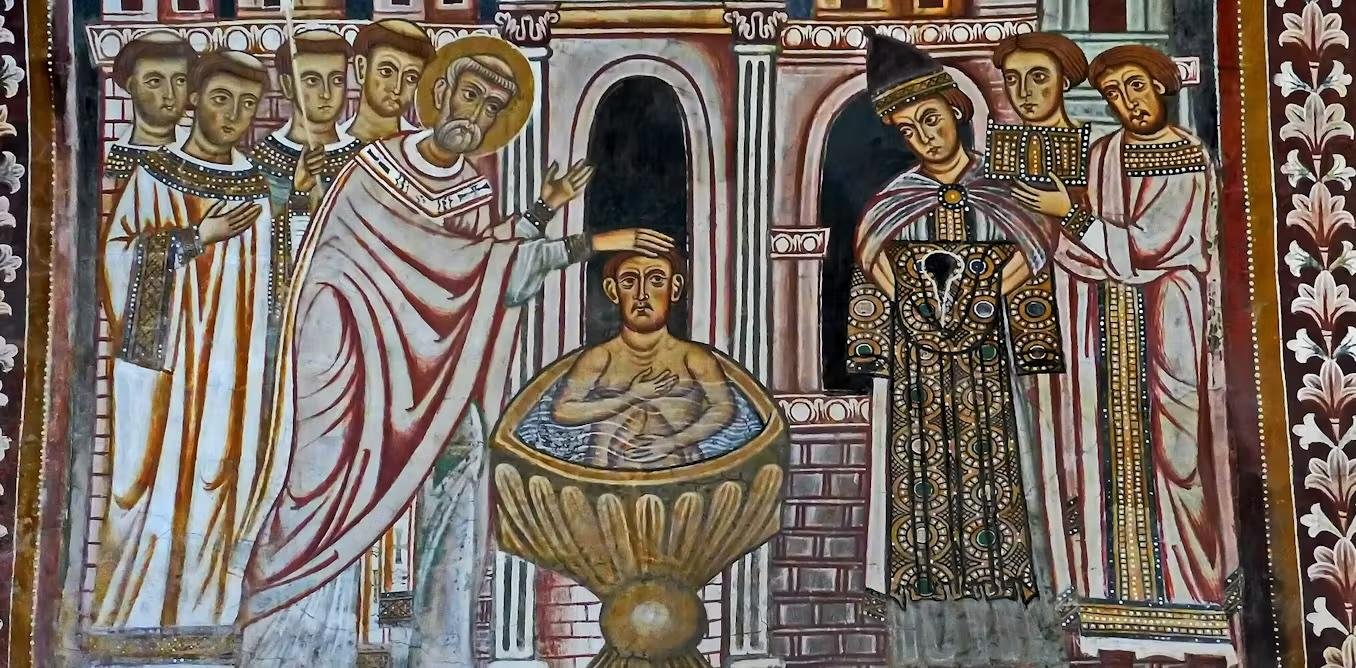faith
New Year’s Eve: Honoring the 4th-Century Pope Who Redefined Church and State

On December 31, while festivities for New Year’s Eve are underway, Roman Catholic Christians commemorate the feast day of St. Silvester. This little-known figure played a crucial role during a formative era in Christianity, serving as the bishop of Rome from 314 to 335 C.E., a position now recognized as the papal role. At that time, the influence of the bishop was significantly less commanding, with the term “pope” derived from the Greek for “father” and mostly used by bishops until centuries later.
Silvester’s life unfolded amidst a tumultuous transition for Christians within the Roman Empire. His tenure coincided with a shift from persecution to a powerful alliance with the state, altering the course of a movement that began with Jesus of Nazareth three centuries earlier. This partnership would soon elevate Christianity to the status of a faith embraced by kings and empires.
Details regarding Silvester’s life remain scarce. The “Liber Pontificalis,” a collection of papal biographies dating back to the sixth century, indicates that he hailed from Rome and was the child of a man named Rufinus. Silvester witnessed the fierce persecutions that began under co-emperor Diocletian in 303 C.E. and persisted even after his abdication.
Although many envision early Christians facing constant oppression, historians argue otherwise. Diocletian’s reign saw harsh measures; Christians were coerced into sacrificing to pagan gods for the empire’s welfare or endured severe penalties. Notably, theologian Augustine noted that some accused Silvester of abandoning his faith during this period, alleging he surrendered Christian texts to authorities and offered sacrifices to pagan deities.
The tide shifted in 313 with the Edict of Milan, signed by Constantine and Licinius, which provided religious tolerance to Christians. Mere months later, Silvester ascended to the role of bishop. Constantine quickly embraced the faith, and despite debates surrounding his true piety, his imperial support initiated a monumental building campaign that transformed Rome’s religious landscape.
Christianity at that time was anything but monolithic. Various interpretations and practices existed, which troubled Emperor Constantine as he aimed for unity. He convened councils to address theological disputes, one of which, the Council of Arles in 314, tackled the contentious Donatist controversy about the legitimacy of priests who had fled persecution. While Silvester, then newly appointed bishop, did not attend, he sent representatives, reflecting possible concerns about his own actions during the earlier persecutions.
Nearly a decade later, Constantine organized a council at Nicaea, intending to resolve debates surrounding the teachings of Arius. Once again, Silvester was absent and sent delegates instead. The Nicene Creed, a critical statement of faith for many Christians today, emerged from this gathering, yet the rift caused by Arius’s teachings continued unresolved.
Given the monumental changes in Christianity during his leadership, one might wonder why Silvester’s influence seems muted in historical accounts. Subsequent generations sought to elevate his status, crafting narratives portraying him as a central figure in Constantine’s conversion. The “Acts of Silvester,” composed in the fifth century, depicted a dramatic story where Silvester, emerging from exile, miraculously healed and baptized Constantine, hence positioning him as an essential player in landmark events.
Legends surrounding Silvester expanded over centuries, even including a fable about battling a dragon. Perhaps most notably, the “Donation of Constantine” emerged as a controversial document claiming that the emperor bequeathed vast authority and land to Silvester, ostensibly solidifying the pope’s role in political matters. This forged text underpinned papal claims to power until its exposure as a counterfeit in the 15th century.
While the specifics of Silvester’s life may remain elusive, the era he inhabited was crucial for Christianity’s evolution into a state-supported faith. His legacy illustrates how history can be reshaped, further influencing modern movements that seek to intertwine religious authority with state power.


















